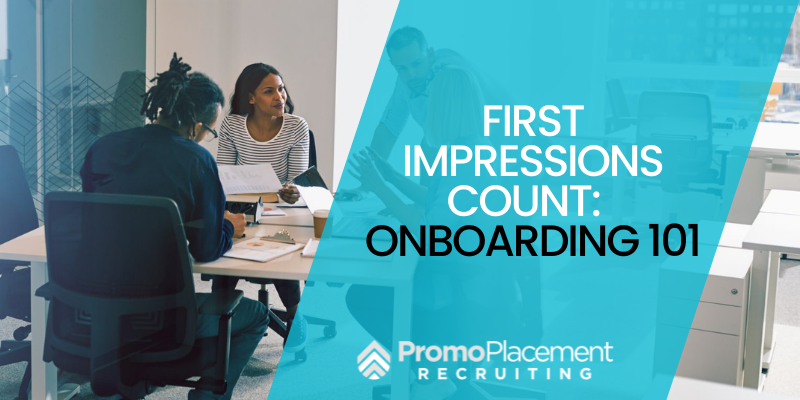First impressions are important. We all strive to put our best foot forward during interviews and try to impress our new employer on the first day. If first impressions are so important, then why don’t we apply this concept to a new hire’s first impression of what it’s like to work for your organization?
We have all experienced some form of onboarding, some good, most not so great. The first day is often associated with being a little stressed, unsure of what to expect, and the dread of boring videos or endless paperwork.

With the impact of onboarding being so significant to the return on investment of a new hire, here are some simple best practices to get you headed in the right direction from the start.
The Week Before
Remember your first day at your current job? Was your computer ready, were basic office supplies set up, and were you greeted upon arrival with a warm welcome? If so, you probably had a positive experience, and are likely still with that organization. If not, think about how it might have changed your opinion of your employer and how it may have impacted your sense of belonging and loyalty.
To get this started right, have the basics ready. Business cards should be ordered and ready on the first day. If applicable, the office nameplate should be in place. A cheat sheet of logins and common contacts should be available.
Day One
Arrive early to ensure everything is set up and ready to go. Greet the new hire warmly and show him or her around, introducing everyone. Make certain to discuss what is acceptable and is not, such as headphones in the workplace, eating at your desk, cell phone policy, late policy, etc. Try not to make it completely process-oriented and keep it conversational and informative.
Depending on the position, it might be a good idea to assign a primary point person to help out the new hire during the learning process. This shows the new hire that it is alright to ask for help and lessens the fear of being a bother.
Two Weeks
By the end of the second week, most people have a feel for whether or not the job is for them. Most employers stop the onboarding process by this time, which is a mistake. This is actually the perfect time to have an informal meeting regarding the level of hospitality among coworkers, any training he or she feels may help, and to give feedback on where you see them headed within the position. This is the time to answer any questions that may have come up over the past two weeks.
Preparedness is the key to a good onboarding experience. Preparing a plan for new hires ahead of when new hires come on board is a great way to ensure that the onboarding process goes smoothly and increases the chances that your new hire will be a long-term, valuable member of your team.


